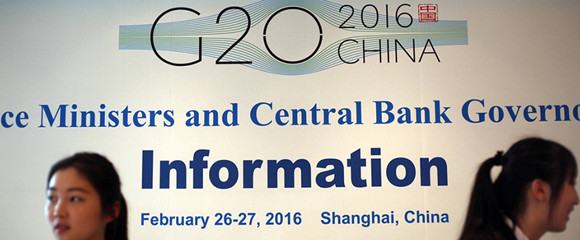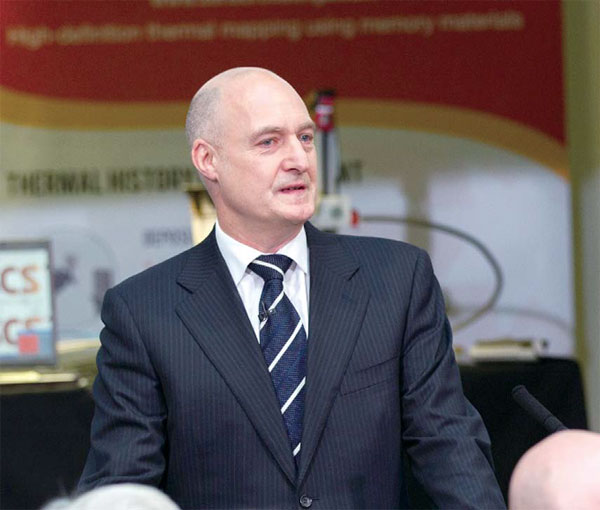Smart city tech vital for China
Updated: 2016-05-13 08:30
By Wang Mingjie(China Daily Europe)
|
|||||||||
Chairman of Smart London says future density of Asian giant's cities will make data crucial to quality of life
David Gann says developing smart cities in China is of great significance as rural to urban migration continues in the country.
The professor of innovation and technology management at Imperial College London says the growth of new cities in China, coupled with the increasing density of population, requires Chinese cities to be "smart", such as making data more available, as in the Smart London plan.
|
David Gann says the growth of new cities in China, coupled with the increasing density of population, requires Chinese cities to be "smart". Provided to China Daily |
Given that urban dwellers can be more vulnerable to risks such as contagious diseases and severe pollution, Gann says the livability of densely packed cities requires good physical and data infrastructure.
"If all you do is to build more housing and cough up power stations without monitoring the air pollution and all other challenges, then you are going to have a very difficult situation in China.
"So you have to bring in the data and you have to understand what's happening in these cities so that you can manage a better environment."
According to Gann, "the smart city is about using digital technology to harness data to improve the way in which the city is operating, but it could mean different things in different places".
He says some of the things that London does can be a bit different from what cities in China do. There are no plug and play technologies that fit into the same types of infrastructure in different cities, he says. But this does not mean cities cannot learn from each other or seek ideas, inspiration and lessons from one another.
As a regular visitor to China, he was particularly dazzled with what he saw in Nanjing.

"I was very impressed with the central control room and the facilities that the Nanjing government has. Huawei was one of the main suppliers of this technology, and it's a fully integrated system for managing across different areas horizontally, between transport and energy and security and safety."
He says the project helps the city run more smoothly, adding: "In some ways I wish we could bring that system into London, but it doesn't transfer very easily."
Gann, the chairman of the Smart London board, says the concept of Smart London originally stemmed from the successful management of the London 2012 Summer Olympics, where a swath of data was used to support the delivery of the Games.
"Part of that was in the transport systems, just moving people and goods and services around; part of it was in the blue light services, including the ambulance, police, and fire service and security, because we had to make sure London was a safe place; and part of it was in the communications. We made sure the whole world could see what was happening."
London was able to provide support digitally for people's experience during the Games in 2012, and as a direct result the decision was taken to create a Smart London board and Gann was asked to be chairman by then-London mayor Boris Johnson.
Gann thinks it was his expertise in digital technology, along with its application and use in business and government, plus Imperial College's top reputation in science and technology in Europe, that led to his selection for the job.
To make the capital function better, Gann says London has put data utilization at its core to help the city manage its transport, social, economic and environmental systems.
The plan did not come into being without hurdles. "The big challenge at the very beginning was getting the right plan, because nobody would agree on what 'smart city' means," says Gann, so he had to chair a board where there were all sorts of different viewpoints.
Thanks to contributions from a mix of academics, businesspeople and administrators, the Smart London plan was published in December 2013, to use the creative power of data and technology to improve the lives of Londoners, the experience of visitors, and the conditions for doing business.
Since the birth of the plan, there have been huge improvements in some areas, says Gann, adding that one of the key contributors is the London Datastore, a data-sharing portal.
A report published in March, entitled The Future of Smart, documented the board's progress in advising, developing and promoting the use of digital infrastructure and data in London.
"London's probably the No 1 city in the world for making data about how London operates available for citizens, visitors and businesses, and that is a very important success factor," Gann says.
Because the London Datastore has been such a powerful piece of infrastructure and is a web portal into information about how London operates, he believes it is liberating, and one of his strong recommendations for China is to make data open.
"It will be quite difficult for China to do that in some ways at the moment, but when you can get to that stage, all sorts of new things can happen."
Also, because the use of scientists and the links between academics, business and government have worked well in London, Gann says China could benefit by encouraging more collaborative efforts from various parties, including researchers, the government and industry.
China could do more with startup entrepreneurs, says Gann, who has lots of experience mentoring startups, supporting rapidly growing tech businesses and developing long-term strategic partnerships with multinational technology corporations.
"Having entrepreneurs who can pick through these ideas and set up new businesses is the way we do things here. It's starting to happen in China. I think more of that can happen," he says, adding that it is a different sort of model for delivery than the government paying for something and doing the installation itself.
Gann says companies like Huawei, which is also a member of the Smart London Board, can play an important role in helping develop smart cities in China. "They're a very sophisticated firm with great competence, both in the mobile communications area and in the core infrastructure area."
He says he thinks there are plenty of avenues for Huawei to continue to develop in those areas but also probably in developing new services and understanding how infrastructure is used to optimize its use.
One of the challenges for Huawei, Gann says, is determining what sort of platform would really deliver in the long term.
"I think if I were in Huawei's shoes I would be wondering: Is there a platform here or are we going to have to keep reinventing ourselves?"
Lara Wolfe contributed to this story.
wangmingjie@mail.chinadailyuk.com
(China Daily European Weekly 05/13/2016 page32)
Today's Top News
China vows to step up anti-corruption co-op
Chinese entrants in public speaking contest fight hard
Global anti-corruption summit opens in London
Britain raises threat of terror attacks to higher level
Chinese students to benefit from EU rules easing
Beijing police respond to death in custody
Uncertainty over Brexit impacts UK economy: Report
AC Milan starts sale talks with Chinese investors
Hot Topics
Lunar probe , China growth forecasts, Emission rules get tougher, China seen through 'colored lens', International board,
Editor's Picks

|

|

|

|

|

|








